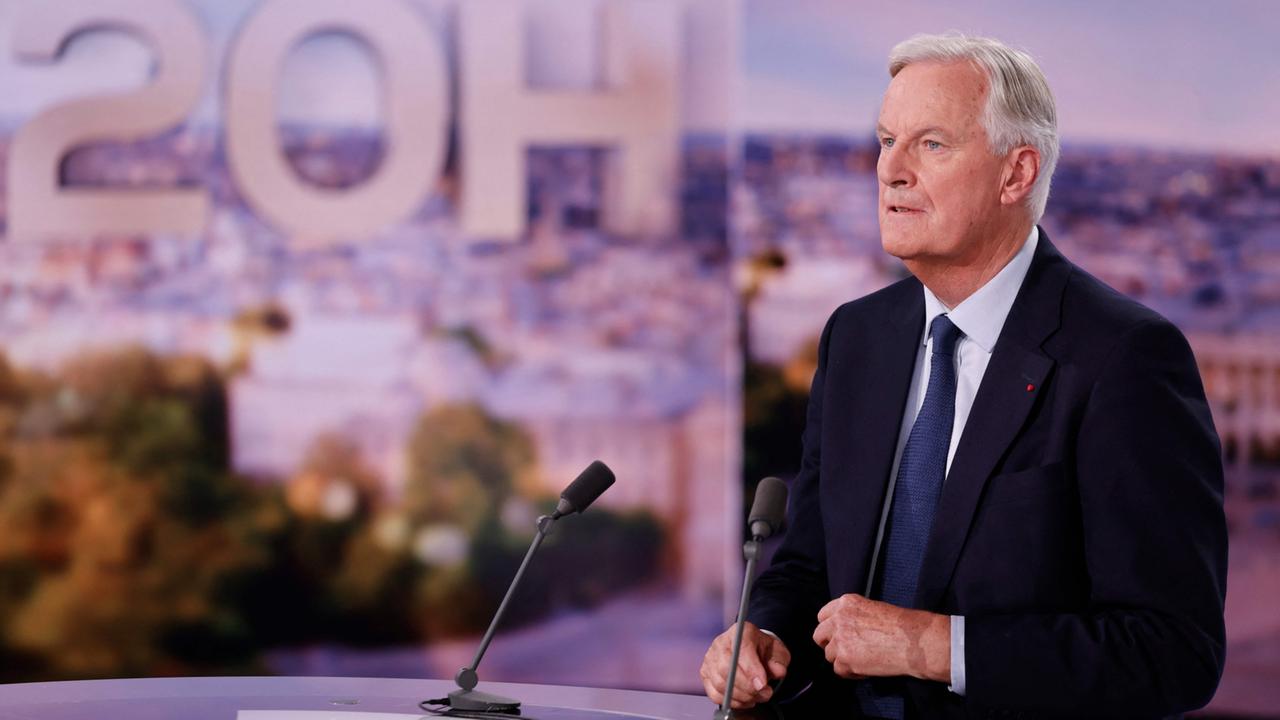France's newly elected Prime Minister Barnier has given his first television interview in his new office. How does he envision his government? And who is Barnier anyway?
He no longer wants to pursue a career at his age – that's how 73-year-old Michel Barnier begins his first TV interview as Prime Minister. The presenter from the TF1 channel asks why he was appointed, whether it was because of his experience. A perfect opportunity for Barnier: “I have a long career behind me. Always supported by the vote of the people,” he says. “For a while I was the youngest MP in France – a title that you lose pretty quickly.”
For 17 years he had the honour of governing his department of Savoy. “Among other things, I organised the Winter Olympics with Jean-Claude Killy. I worked in various ministries, for the environment, agriculture, fishing – I won't forget the fishermen.” But he completely forgot the Foreign Ministry, which he headed.
Top politicians from the Alps
An environmental law is named after him, the “Loi Barnier” and the “Taxe Barnier” is a maritime tax for tourists who travel to nature reserves. Born near Grenoble and educated in Albertville, he is one of the few top politicians in France who did not graduate from the ENA, but from the Paris School of Economics.
He comes from the family of a small business owner and is the youngest of three brothers. Barnier's wife Isabelle is a lawyer and they have three children. He describes himself as a “montagnard”, a mountain dweller – the French Alps are his home.
Mr Brexit
He also had his ups and downs in his political life: he failed in the primaries for a presidential candidacy in his own party – the conservative Republicans – and he also failed to become President of the European Commission – but instead became Mr. Brexit. His European commitment, however, began earlier.
“I remember being Commissioner for Financial Regulation for five years in the middle of the financial crisis and having to ensure order, morality, transparency and a sense of responsibility towards bankers who thought they could get away with anything,” he says. “Ultraliberalism that destroyed millions of jobs. And then this complex Brexit negotiation, with the support of our President, the German Chancellor and others, I defended Europe's interests.”
Left plans Vote of no confidence against him
Negotiating, bringing people together, respecting them and listening to them – that is probably why he was appointed. Now he wants to roll up his sleeves. Respect for the parliament, in which he has no majority, for the social partners, but also for the citizens, Barnier announces. Every individual is important.
Ideas come from below and from France's regions. He could even imagine the left, the actual winner of the parliamentary election, in his government. However, they are more likely to plan a vote of no confidence to topple him.
Outgoing French Prime Minister Gabriel Attal and newly appointed Prime Minister Michel Barnier at the handover ceremony at the Hotel Matignon in Paris.
Barnier and the RN
Barnier explained in a TV interview that he also wanted ministers from the Macron camp, and that some of them might stay in office. However, his predecessor Gabriel Attal, now parliamentary group leader of the Macron party, does not want to follow him unconditionally.
There is no red line “We have to open the door to everyone who wants it,” said Barnier, who could be tolerated by the right-wing nationalist Rassemblement National, against which all forces had taken a stand. But at what price? In 2021, Barnier had called for a multi-year immigration moratorium. He has nothing or very little in common with the RN, but respects its eleven million voters.
“The president directs, the prime minister governs”
There is no red line, for example, to change the electoral system or improve the unpopular pension reform within the budget. Barnier's three priorities: prevent debt from growing, control immigration flows and increase the value of work. In addition, promote growth, strengthen the public service and ensure fairness before the tax authorities.
He has previously been a clear critic of Macron, but now the president wants a “demanding coexistence” with Barnier and gives him some leeway. The Elysée will no longer appoint the ministers' office managers and the presidential advisor will no longer attend the weekly meeting at Barnier's office.
What does Barnier himself say about this? The president directs, the prime minister governs. Pragmatic, with integrity, a man of compromise with solid convictions. Old school, he holds the door open for you, some say. Others think he is aloof, a political fossil. Michel Barnier's own conclusion: The situation is serious, but there is reason for hope.





